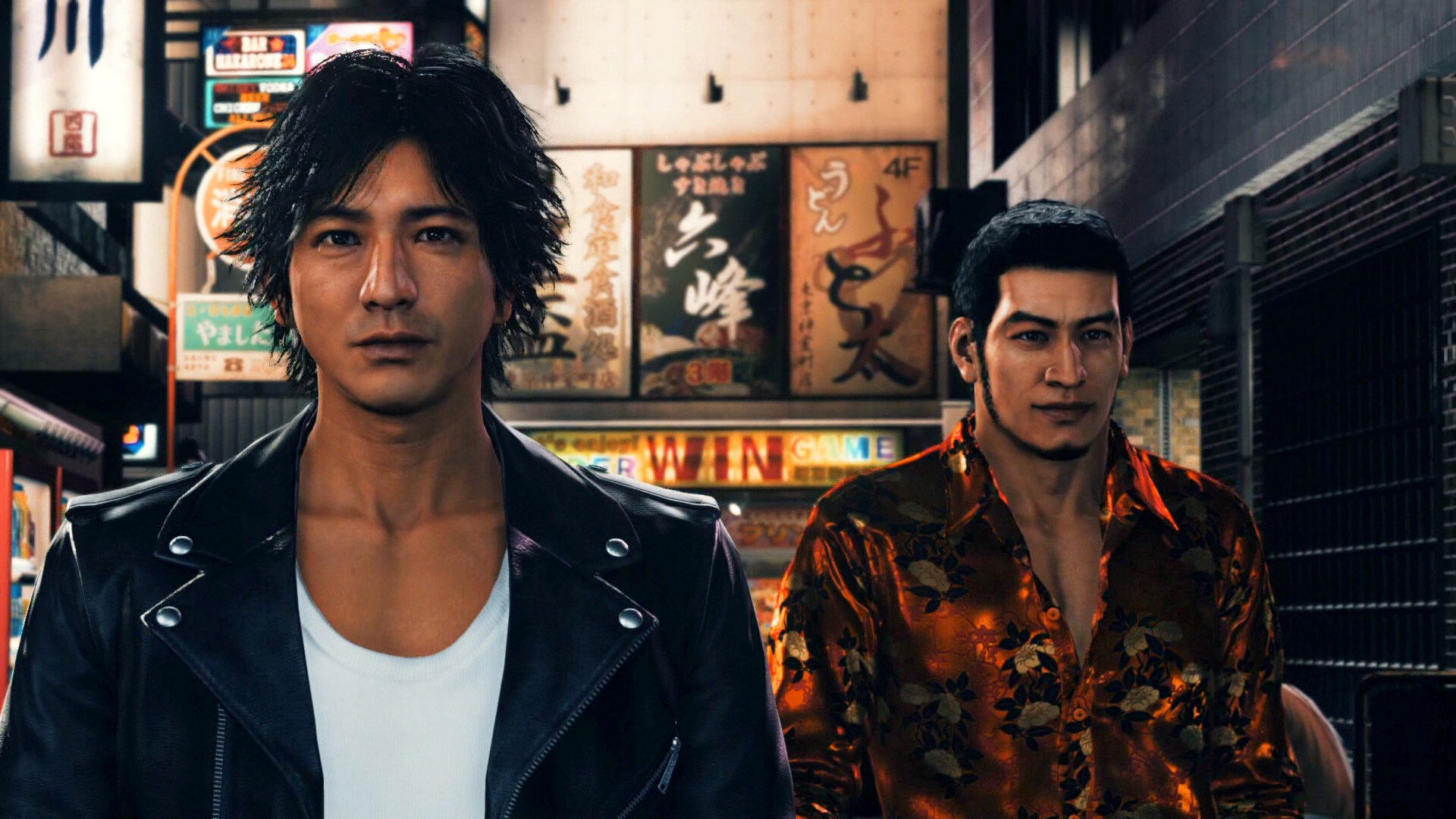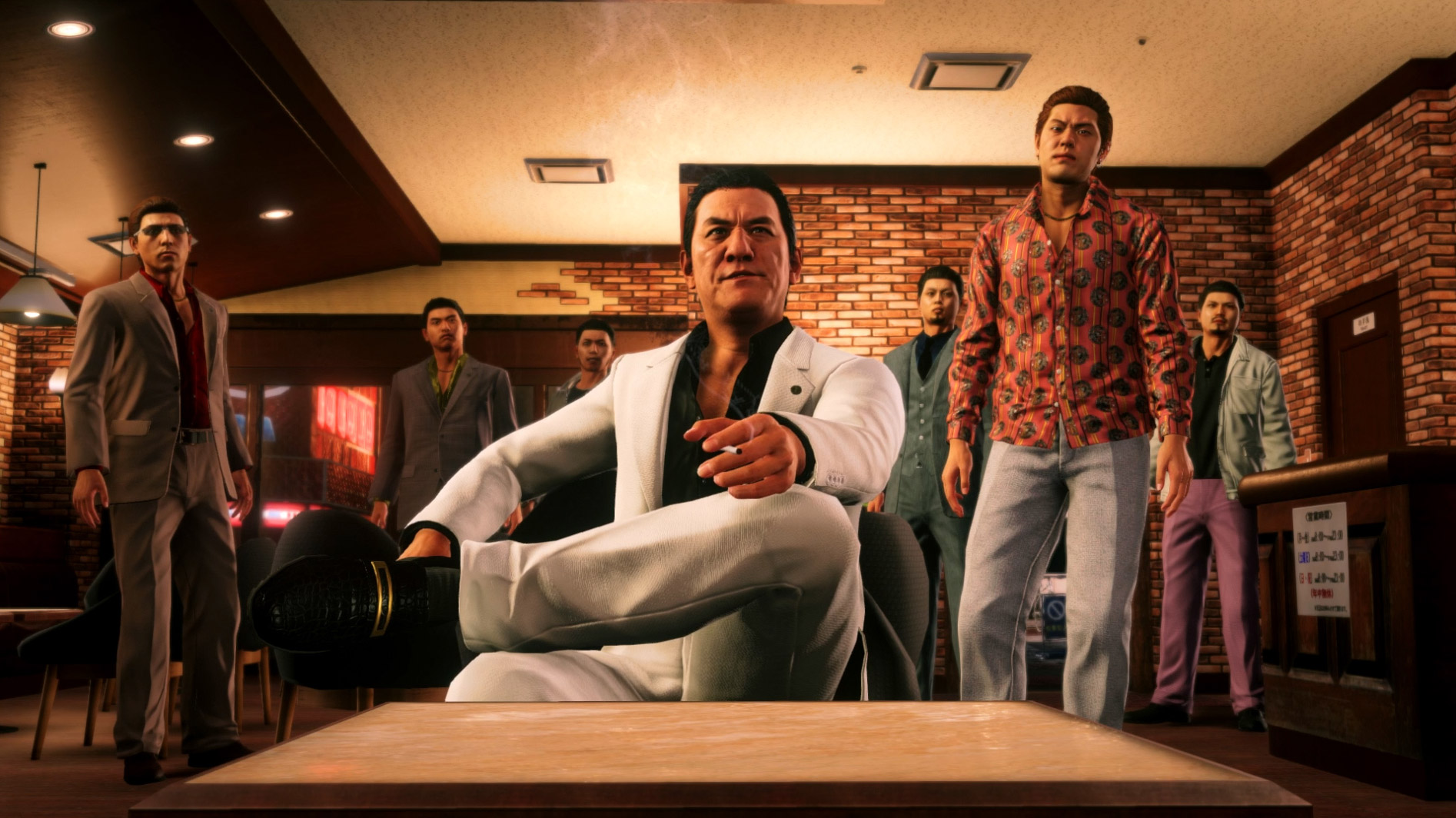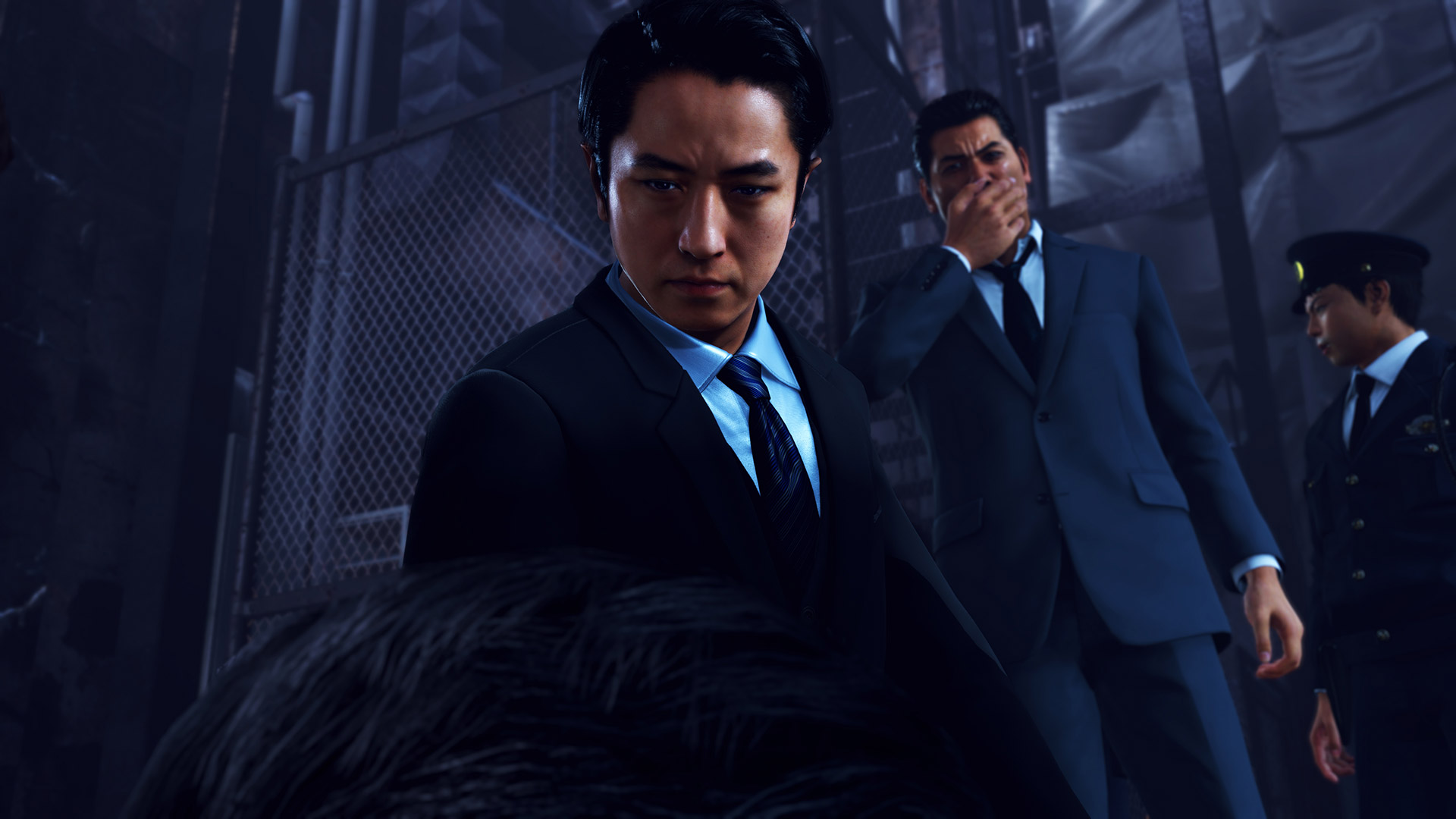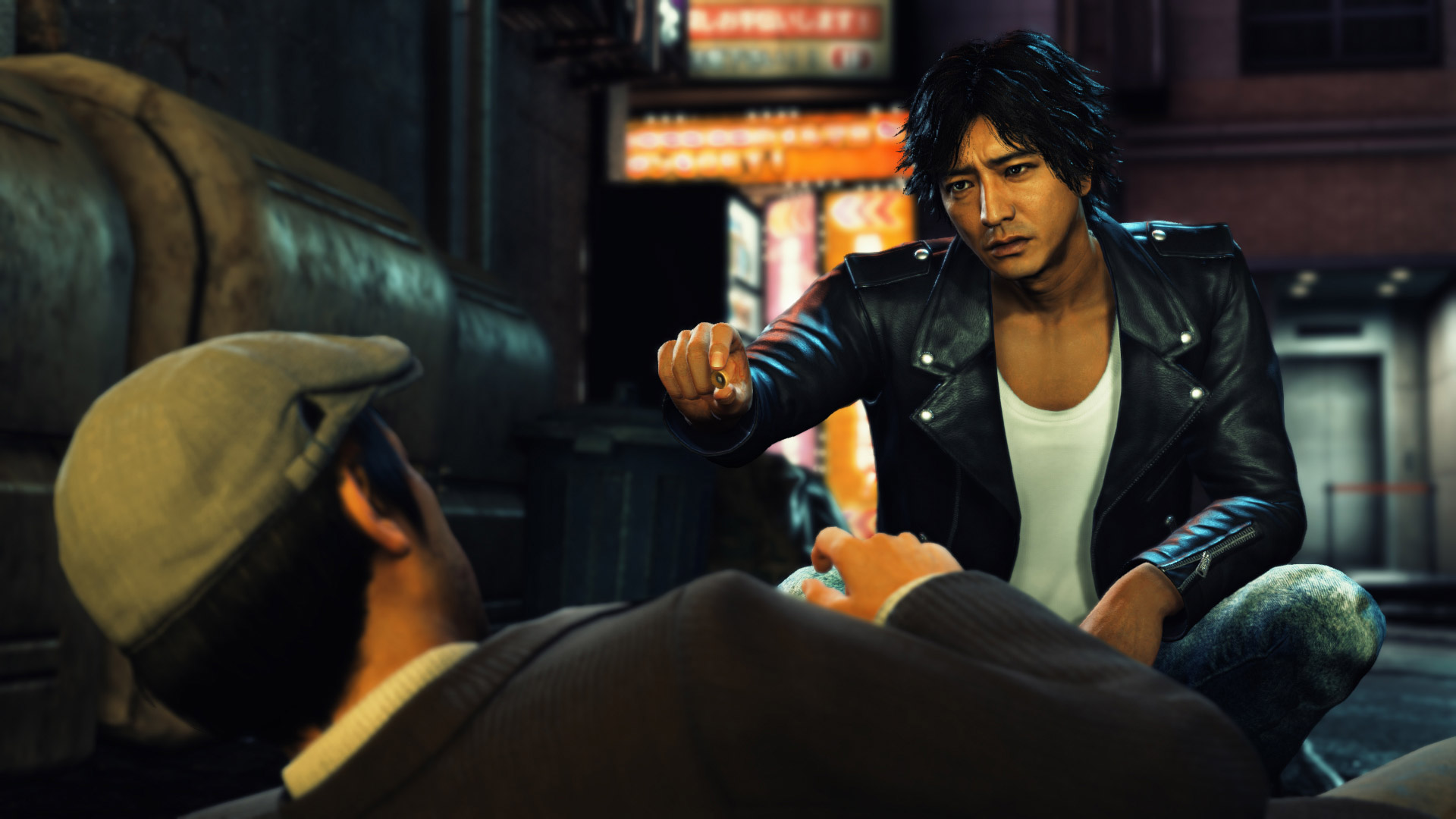Judgment May Look Like Yet Another Yakuza Game, But It’s Much More
It was just around a year ago that I finally came to right one of my gaming wrongs: never having played a Yakuza game. After knowing the franchise, its creators, and even its characters since as far back as the PlayStation 2 era, I at last actually got the full experience of playing through one of the games via the then latest release, Yakuza 6. Sure, some might argue that starting with the final chapter of a sprawling epic isn’t the best introduction to said epic, but I was having too much fun and getting too attached to the unfolding drama to care about such details.
It’s interesting, then, the position I find myself in waiting for Sega CS1’s latest project Judgment. For dedicated Yakuza fans, this will be a game that still exists in the same universe while finally shifting the focus away from longtime protagonist Kazuma Kiryu—no matter if that’s a shift that they wanted or not. For me, I’ve got plenty of other Yakuza titles still waiting the moment I’m ready for more, so a totally fresh take on previous ideas led by an entirely new cast has no chance of betraying my hopes or expectations. Well, beyond what I’ve now come to expect from creator Toshihiro Nagoshi and his team in general, which would be amazing visuals, engrossing drama, and running around the streets of Japan partaking in a variety of side content while forgetting about the very important task I was in the middle of.
Though it may just be a case of “newer is obviously better,” after going hands-on with Judgment for around an hour and half recently, I came away feeling that it’s a noticeable visual upgrade over Yakuza 6. I mean, if that’s actually possible. The Yakuza team’s work is clearly in the running for winning the “most realistic character models in video games” award, but something about Judgment feels like an impressive step above an already impressive step above everything else. As to why, it’s hard to really nail down. Maybe it’s the lighting, or maybe it’s a series of slight tweaks to Yakuza’s art direction, or maybe it’s the team getting a better handle on its new Dragon Engine in this, its third outing. It could even be due to the fact that the game indeed features new characters doing new things—even if that might not make sense at first. My thought is, we’ve seen Kiryu and Goro Majima and the rest of the cast around for years, so it can be harder to appreciate their graphical growth over time. Here, in Judgment, we’re seeing these people for the first time at the underlying technology’s most impressive point.
How we hear the cast will also be different as well, as Sega is producing a full English dub for the game, something they haven’t done for the Yakuza series in a while. I played the first part of the demo in English, and the cast sounded pretty good. Honestly, though, I can’t imagine playing a game like this in anything but Japanese—but the push to offer both was a smart decision that’ll no doubt help Judgment appeal to a broader audience.
And what of that cast? I went into Judgment a bit bemused by its new protagonist Takayuki Yagami. Lending both his voice and his face to Yagami is Takuya Kimura, a famous Japanese singer-turned-actor sometimes known better by his nickname “KimuTaku.” While he’s many things to many people in his home country, to me, he will forever be an ex-member of SMAP, a J-pop group infamous for how immensely popular they became despise being terrible singers. (Seriously, look up “Smap sekai no hana live” and listen to everything outside of the harmonies.)
Yet, I will give KimuTaku his due here. His Yagami is no Kazuma Kiryu—really, who is—but the time I spent with the game was enough to convince me that I’m interested in seeing where this character goes. Yagami begins the story as a young hotshot lawyer who successfully gotten a client off of a murder rap in a country with an insanely high conviction rate. Unfortunately, shortly after being released from prison, that same client ends up arrested for killing his girlfriend. This devastates Yagami, the guilt of having freed a potential murderer weighing down upon him, and when we catch back up with our protagonist a few years later, he’s now given up that life of law. Instead, Yagami is slumming it around Kamurocho as a small-time detective, picking up work wherever he can. One day, fate brings him back to his old law office, when he’s asked by a former colleague to do grunt work on a murder case involving a member of a local yakuza family.
Even as Yagami’s tale takes place in the same area of Tokyo that most of the Yakuza series did, and the overall gameplay engine and visual direction are similar to what we’ve seen before, there’s just something about Judgment that feels different right off the bat. It’s the new cast, sure, but it’s also the fresh angle on the story. Instead of being part of a huge, well-established crime syndicate, we start off on the completely other end of the spectrum—as someone fighting to uphold the law—until we’re tossed into an in-between world that promises to cross back and forth through both sides. At first glance, you’d swear that Judgment could be just another chapter of the Yakuza saga, but it quickly comes to stand on its own (at least from what I saw of it). To all of the Yakuza fans out there, be excited for a new experience that plays out in the same spirit as its predecessors, but don’t come in just hoping for a surrogate Yakuza 7.
Helping to showcase that difference is a number of new gameplay elements integrated into the game. It only makes sense that Yagami—as both an ex-lawyer and an active private detective—would take a more cerebral approach to dealing with situations. In that regard, I got to try out a few examples of the game’s detective work. In one moment, I’d lost a subject I was following in a crowd, so I had to check out all of the male pedestrians in the area using a sketch of the man to compare physical features. Then, once I’d found him, I had to make sure to keep on his tail, darting around corners or hiding behind signs so he didn’t get too suspicious that someone was following him. I’m still not certain how deep these types of gameplay additions will be in the long run, and if they’ll be a legitimately interesting aspect of detective work or more of a glorified gimmick. At least for now, though, I’m hopeful.
That hope extends to another new element in Judgment: the ability to question people. Throughout my playtime, I encountered a few different people that I needed information from. At various moments while talking to them, the game would offer me a selection of questions to ask them, with bonus experience points awarded if I focused on asking those that would get me the best information the quickest. Again, I don’t know that we should be expecting visual novel–level dialog choices here, but it was another unique twist on the Yakuza formula that should help give the game an atmosphere of its own.
While Judgment seems to rely on a few legacy ideas that it maybe shouldn’t—like, I’m not sure Yagami really needs to have random battles with groups of punks when simply walking around the way Kiryu did—I came away really impressed by how a little went a long way in making the game not just feel like another chapter in the Yakuza saga. Right from the start, Judgment comes off as a fresh and exciting new gaming experience, and even with my admittedly limited knowledge of what Nagoshi and crew are capable of, I’ve already come to have some pretty high expectations that were only reinforced with my hands-on demo.



